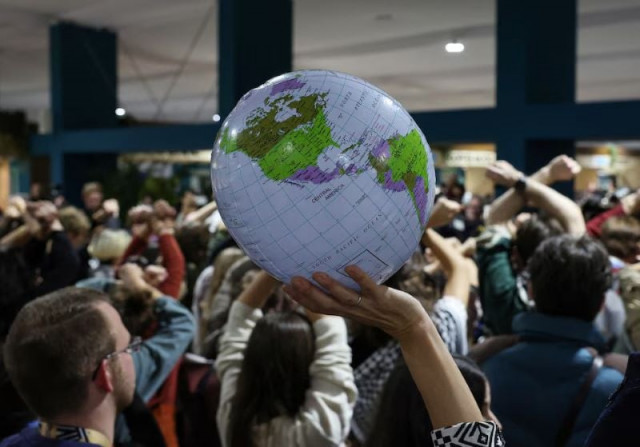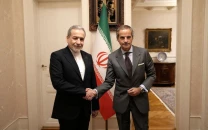Poor nations slam 'paltry' $300b climate deal
Sierra Leone's climate minister says it shows a 'lack of goodwill' from rich countries to stand by the world's poor

The world approved a bitterly negotiated climate deal Sunday but poorer nations most at the mercy of worsening disasters dismissed a $300 billion a year pledge from wealthy historic polluters as insultingly low.
After two exhausting weeks of chaotic bargaining and sleepless nights, nearly 200 nations banged through the contentious finance pact in the early hours in a sports stadium in Azerbaijan.
But the applause had barely subsided when India delivered a full-throated rejection of the "abysmally poor" deal, kicking off a firestorm of criticism from across the developing world.
"It's a paltry sum," thundered India's delegate Chandni Raina.
"This document is little more than an optical illusion. This, in our opinion, will not address the enormity of the challenge we all face."
Sierra Leone's climate minister Jiwoh Abdulai said it showed a "lack of goodwill" from rich countries to stand by the world's poorest as they confront rising seas and harsher droughts.
Nigeria's envoy Nkiruka Maduekwe put it more bluntly: "This is an insult".
Some countries had accused Azerbaijan, an oil and gas exporter, of lacking the will to meet the moment in a year defined by costly disasters and on track to become the hottest on record.
But at protests throughout COP29, developed nations -- major economies like the European Union, United States and Japan -- were accused of negotiating in bad faith, making a fair deal impossible.
Developing nations arrived in the Caspian Sea city of Baku hoping to secure a massive financial boost from rich countries many times above their existing pledge of $100 billion a year.
Tina Stege, climate envoy for the Marshall Islands, said she would return home with only "small portion" of what she fought for, but not empty-handed.
"It isn't nearly enough, but it's a start," said Stege, whose atoll nation homeland faces an existential threat from creeping sea levels.
Nations had struggled at COP29 to reconcile long-standing divisions over how much developed nations most accountable for historic climate change should provide to poorer countries least responsible but most impacted by Earth's rapid warming.
UN climate chief Simon Stiell acknowledged the final deal was imperfect and said "no country got everything they wanted".
"This is no time for victory laps," he said.
UN Secretary-General Antonio Guterres said he had "hoped for a more ambitious outcome" and appealed to governments to see it as a starting point.
Developed countries only put the $300 billion figure on the table on Saturday after COP29 went into extra time and diplomats worked through the night to improve an earlier spurned offer.
Bleary-eyed diplomats, huddled anxiously in groups, were still polishing the final phrasing on the plenary floor in the dying hours before the deal passed.
UK Energy Secretary Ed Miliband hailed "a critical eleventh hour deal at the eleventh hour for the climate".
At points, the talks appeared on the brink of collapse.
Delegates stormed out of meetings, fired shots across the bow, and threatened to walk away from the negotiating table should rich nations not cough up more cash.



















COMMENTS
Comments are moderated and generally will be posted if they are on-topic and not abusive.
For more information, please see our Comments FAQ